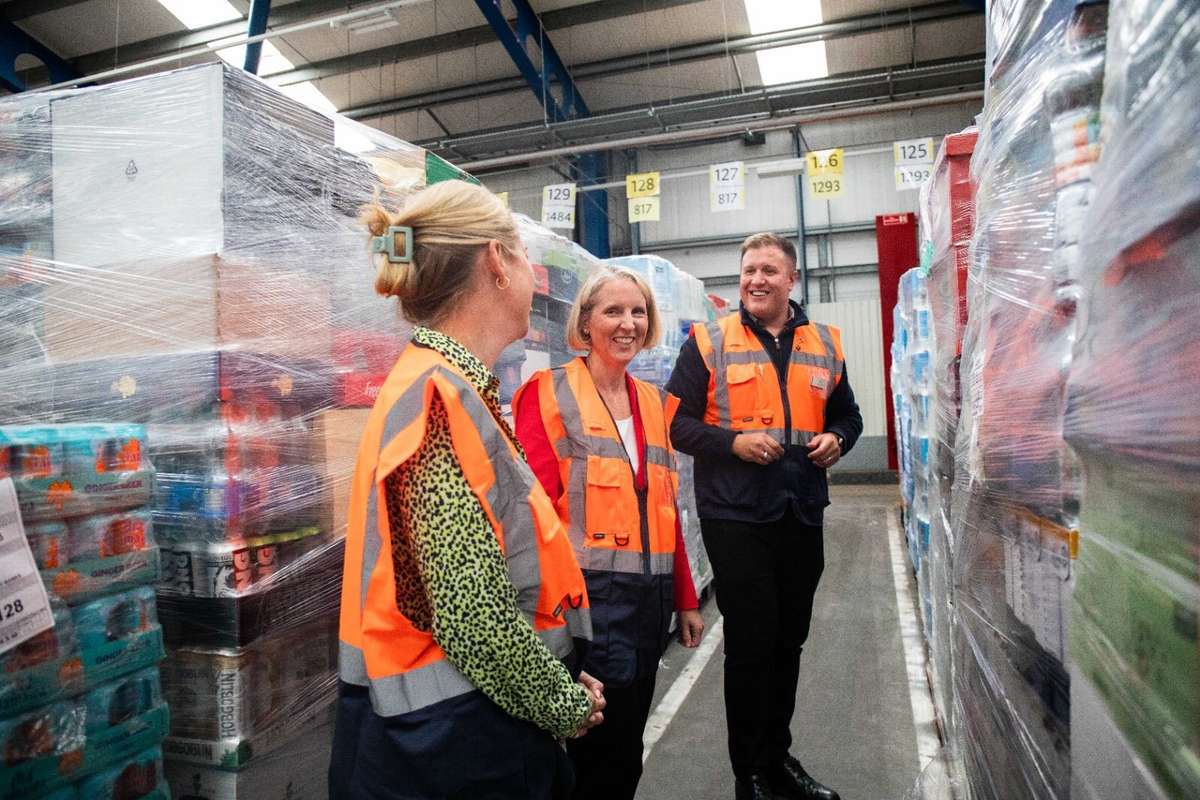Summary
- Treasury minister Emma Reynolds says SPS agreement will reduce food import costs and boost choice.
- Removal of Export Health Certificates could save small businesses up to £200 per consignment.
- Convenience retailers expected to benefit from steadier supply chains and lower wholesale prices.
Economic secretary to the Treasury Emma Reynolds has highlighted the benefits of the UK-EU Sanitary and Phytosanitary (SPS) agreement during a visit to Lidl GB’s Runcorn distribution centre.
Speaking at the site on Tuesday (27 August), Reynolds said the deal – which removes most border checks on imported meat, fish, fruit and vegetables – will help keep food prices down, boost consumer choice and support small and medium-sized businesses trading with the EU.
“Our trade deal with the EU will deliver for families and businesses across the North West with lower food import costs and reduced red tape,” Reynolds said, adding that Lidl GB’s investment shows that international companies are backing Britain and the government’s mission to drive growth across every region.
For smaller food businesses, the SPS agreement means significant savings, as the requirement for Export Health Certificates has been scrapped, cutting costs by up to £200 per load. This is particularly valuable for lorries carrying mixed loads of fresh produce, reducing pressure on food prices for shoppers.
The Treasury estimates the agreement could add £5.1bn annually to the UK economy, while reducing supply chain pressures for wholesalers and convenience retailers. Retailers could see steadier access to high-demand products such as tomatoes, grapes and peppers – which have faced cost and availability issues in recent years.
By reducing checks and easing movements across the Irish Sea, the agreement also strengthens the North West’s position as a key trade gateway.
During the visit, Reynolds also welcomed Lidl GB’s £435m investment in upgrading its warehouses in Leeds and London, a move expected to create more than 500 jobs and strengthen the retailer’s UK supply network.
Lidl GB’s chief real estate officer Richard Taylor said the company’s expansion was about more than logistics. “These investments … represent an investment in our mission to make good food accessible to households across the country,” he said.


